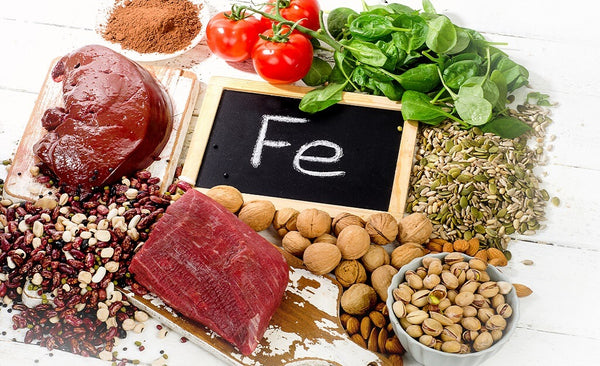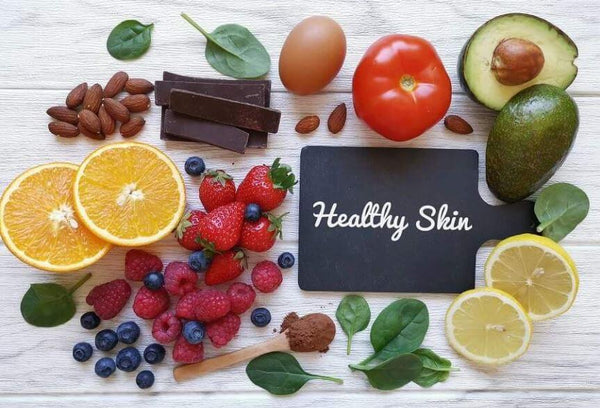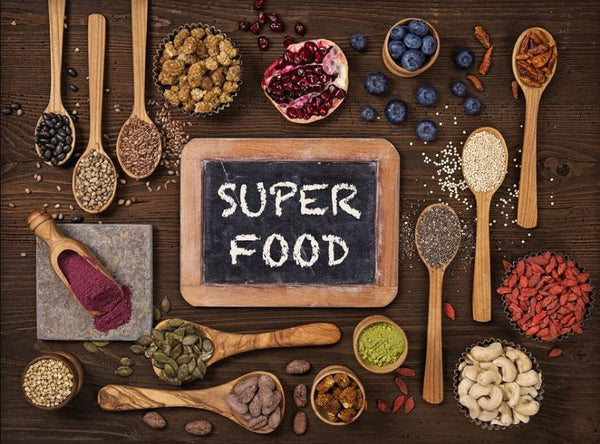Foods That Help You Sleep
Food plays a key role in sleep. Certain foods can interfere with getting a good night’s slumber and we’ve often been told to avoid them for better sleep hygiene.
Caffeine is the most obvious example when it comes to stimulating wakefulness, which is why it’s best to keep off that cup of coffee or can of soda later in the day. But did you know that there are also certain foods that can help you get more quality sleep?
It all starts with melatonin
As a naturally occurring hormone in the human body, melatonin plays an important part in regulating our sleep-wake cycle. No doubt you’re all familiar with the terms circadian rhythm or body clock – the timing of our body processes (such as eating, sleeping, and temperature) according to a regular schedule over a 24-hour period.
As our eyes detect light or darkness through the retina, melatonin is manufactured by the pineal gland in our brain. More melatonin is produced with reduced light, with levels increasing by at least tenfold in the evening compared to daytime.
Melatonin is often referred to as the ‘sleep hormone’ since it acts as a time cue to anticipate sleep.
It is also important to note that the precursor to melatonin is serotonin, a well-known neurotransmitter which is derived from the amino acid tryptophan. We know that exposure to sunlight increases our serotonin and that our pineal gland in the brain converts it to melatonin as night time and darkness set in. But did you know that we can also boost melatonin through certain foods rich in tryptophan?
What is tryptophan?
Tryptophan is referred to as an essential amino acid, which means that your body cannot make it – you must obtain it from your diet through protein-rich foods.
Once consumed, tryptophan crosses your blood-brain barrier and is used to make serotonin in the brain. Without adequate levels of tryptophan in the brain, sleep can be a struggle.

The challenge with shuttling tryptophan to your brain is that it has to compete with other amino acids for access to the limited number of channels that line your blood-brain barrier. Moreover, tryptophan tends to be outnumbered by other amino acids in natural foods.
The key to getting enough tryptophan to your brain for good sleep is to add tryptophan-rich foods to a carb-rich diet. Consuming healthy carbohydrates causes your body to release insulin, which diverts many other amino acids away from your brain. This leaves tryptophan with little competition to cross the blood-brain barrier so it reaches your brain more easily.
Tryptophan-rich foods
Combine any of these with a healthy, carbohydrate-rich diet and you can promote both normal sleep onset and maintenance.
- Bananas
- Whole grains, esp. oats and barley
- Dates
- Lentils
- Wheatgerm
- Chickpeas
- Walnuts
- Cashews
- Turkey
- Wild-caught salmon and other seafood
- Free-range chicken
- Free-range eggs
- Ground flax seeds
- Sunflower seeds
- Sesame seeds
- Spinach
- Miso or tempeh (fermented soybeans)
Combined meal ideas
- An apple with 1 tbsp of cashew butter
- A banana with your Happy Shape smoothie
- Oat porridge with wheat germ and flax seeds
- Brown rice with spinach and tempeh
- Miso soup with 100% buckwheat soba noodles
- Barley, spinach, and lentil soup
- Stewed apple, walnuts, cinnamon, and tahini
- Salmon, brown rice and miso
- Brown rice with lentils and guacamole
- Hummus and broccoli burgers
- Egg with a slice of sourdough toast
- Brown rice noodles with turkey/chicken
Herbal Teas
Herbal teas can be considered a food and regular use can assist the body to establish a healthy circadian rhythm. Common herbal teas to help sleep are chamomile, vervain, valerian, passionflower, lavender, magnolia, and sage if you are having hot flushes.
Other ways to improve sleep
If you still have trouble making enough melatonin and having a good night’s sleep, think about whether you have inflammation in your body. Inflammation prevents the normal conversion of serotonin to melatonin.
For more tips on boosting your energy through improved sleep, see our article on Tips to Improve Sleep & Hormonal Health.
You might also like to check out our Sleepy Milk Elixir recipe for a healthy and nourishing nightcap!
Finally, Happy Sleep is a unique combination of ingredients developed by Dr Jeff Butterworth to assist in regulating natural sleep cycles. Healthy sleep is one of the core components needed to balance and reset hormone levels. Dr Jeff developed this formula to assist women who have poor quality sleep.
REFERENCES
Kim, B., Hong, V. M., Yang, J., Hyun, H., Im, J. J., Hwang, J., Yoon, S., & Kim, J. E. (2016). A Review of Fermented Foods with Beneficial Effects on Brain and Cognitive Function. Preventive nutrition and food science, 21(4), 297–309.
https://www.ncbi.nlm.nih.gov/pmc/articles/PMC5216880/
Li, Y., Hao, Y., Fan, F., & Zhang, B. (2018). The Role of Microbiome in Insomnia, Circadian Disturbance and Depression. Frontiers in psychiatry, 9, 669.
https://www.ncbi.nlm.nih.gov/pmc/articles/PMC6290721/
O'Callaghan, F., Muurlink, O., & Reid, N. (2018). Effects of caffeine on sleep quality and daytime functioning. Risk management and healthcare policy, 11, 263–271.
https://www.ncbi.nlm.nih.gov/pmc/articles/PMC6292246/
Paredes, S. D., Barriga, C., Reiter, R. J., & Rodríguez, A. B. (2009). Assessment of the Potential Role of Tryptophan as the Precursor of Serotonin and Melatonin for the Aged Sleep-wake Cycle and Immune Function: Streptopelia Risoria as a Model. International journal of tryptophan research : IJTR, 2, 23–36.
https://www.ncbi.nlm.nih.gov/pmc/articles/PMC3195230/
Zisapel N. (2018). New perspectives on the role of melatonin in human sleep, circadian rhythms and their regulation. British journal of pharmacology, 175(16), 3190–3199.
https://www.ncbi.nlm.nih.gov/pmc/articles/PMC6057895/























